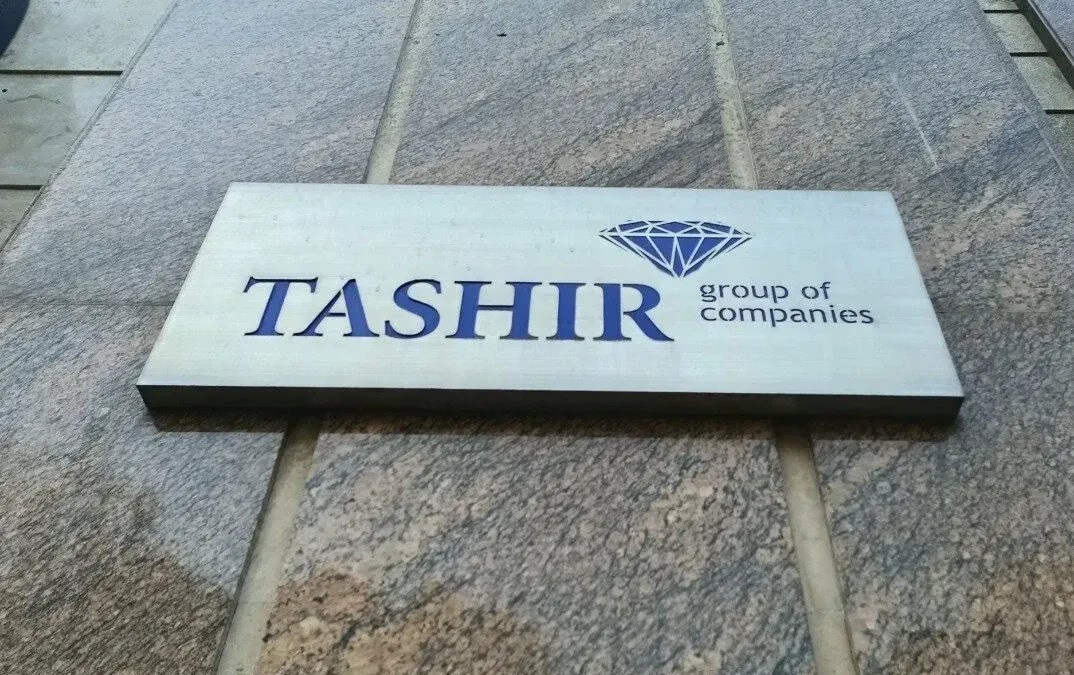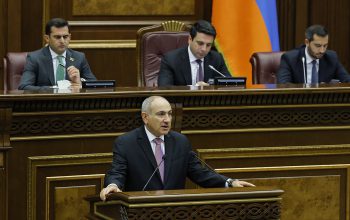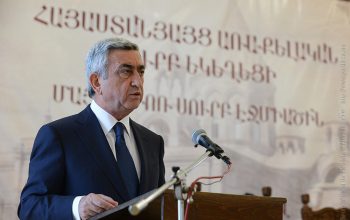Law enforcement authorities raided the Yerevan offices of the Tashir Group on Wednesday, escalating what many view as a politically motivated assault against its jailed owner, billionaire Samvel Karapetyan. The raid coincided with the Armenian parliament’s rushed approval of a controversial bill enabling the government to seize Karapetyan’s most valuable asset in Armenia: the Electric Networks of Armenia (ENA).
Officers from the Investigative Committee spent nearly six hours searching Tashir’s headquarters in central Yerevan, confiscating computers and other electronic equipment. Officials claimed the search was part of a criminal probe into alleged large-scale tax evasion and money laundering. Yet no formal charges have been announced against Karapetyan or any Tashir executives.
Karapetyan’s lawyer, Armen Feroyan, rejected the accusations as fabricated and politically driven. “This is a chain of illegalities that was predictable and, I think, will continue,” Feroyan told reporters.
Opposition lawmakers who spoke outside the building echoed that view, linking the raid directly to Karapetyan’s June 18 arrest. The billionaire was charged with calling for a violent regime change after publicly condemning Prime Minister Nikol Pashinyan’s attempts to unseat the leadership of the Armenian Apostolic Church—clergy who have resisted his ongoing concessions to Azerbaijan and Turkey.
Just days after Karapetyan’s arrest, Pashinyan vowed to “quickly” nationalize ENA, accusing the company of orchestrating an “energy crisis” to foment unrest. However, critics believe this narrative is merely a smokescreen for retribution. They argue that the move is designed to punish Karapetyan for political dissent and sends a chilling message to other potential investors and opponents.
On Wednesday, the Pashinyan-controlled National Assembly ignored warnings from economists, opposition parties, and international observers, approving legislation that gives the government the authority to “temporarily” take over management of ENA and force its sale within three months. The takeover must still be approved by the Public Services Regulatory Commission (PSRC), whose current chairman is a former Civil Contract party member who conveniently ended his affiliation shortly before assuming the role last November.
The Karapetyan family responded swiftly, threatening international legal action against the Armenian government. In a public statement, they described the planned expropriation as “arbitrary, discriminatory, and politically motivated.”
Meanwhile, Pashinyan took to Facebook Wednesday morning to issue thinly veiled threats against ENA employees. He warned that any staff who participate in a rally organized by the Karapetyan family on Friday would face dismissal once the government assumes control of the utility. He also claimed that “those who force ENA workers to take part in rallies” would be prosecuted—though he provided no evidence of such coercion.
Karapetyan’s legal team responded with a statement reassuring ENA employees that they would not be abandoned: “Their violated labor rights will be restored, and in the meantime they will have [different] work under equivalent conditions.”
This latest power grab comes amid growing accusations that Pashinyan is using state institutions to target political and economic rivals. Observers warn that the forced seizure of ENA, a landmark move without precedent in post-Soviet Armenia, risks scaring off much-needed foreign investment and further destabilizing the country’s already fragile business environment.
For critics, the message is clear: under Pashinyan’s rule, dissent—whether political or economic—will not be tolerated.Voice chat ended




